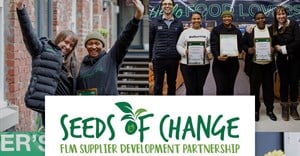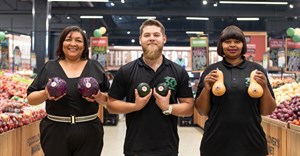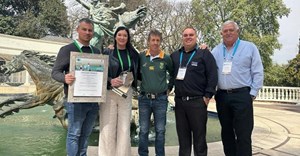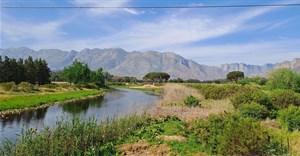SA retailers making strides towards sustainable seafood
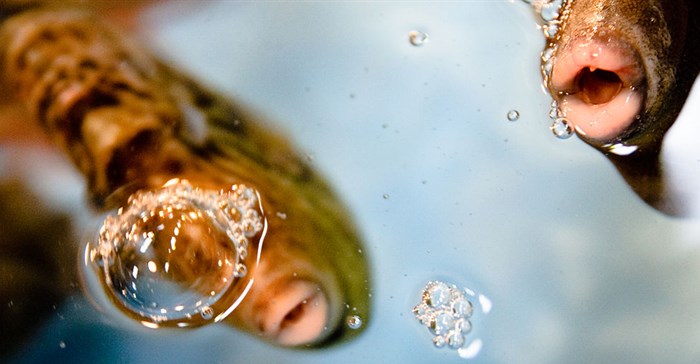
A further three companies are also turning the tide on unsustainable fishing practices, bringing the total to nine participants that have made clear and time-bound commitments to sustainable seafood.
WWF-SASSI Retailer/Supplier Participation Scheme Report
As part of these companies’ commitment to transparency, a detailed description of each of these companies’ performance against their commitments will be published in the upcoming 2015 WWF-SASSI Retailer/Supplier Participation Scheme Report which will be launched on 2 March 2016 at the 2016 annual Marine Stewardship Council (MSC) and WWF-SASSI Sustainable Seafood Symposium in Cape Town.
The 2015 report illustrates how each of the nine participating companies has progressed towards transforming their seafood procurement streams. Although the report shows that varying aspects of these six companies’ commitments to sustainable seafood remain unmet, there are clear signs of progress made by these companies since the first edition of the report in 2014.
Between the 2014 and 2015, editions of the report there have been an overall average increase of 10% in species meeting the various companies’ commitments to sustainable seafood. Even more encouraging is that an average of 9% of species procured is currently noted as “Under Improvement” which indicates strong market support for species originating from fisheries or fish farms that are actively addressing sustainability concerns in their operations.
Significant progress
Although some aspects of each of the six participants’ with end 2015 targets (I&J, John Dory’s, Pick n Pay, Fruit & Veg City/Food Lover’s Market, Woolworths and the Spar Group Limited) must still be achieved, each of them made significant progress towards their goals.
“The progress to date is proof that the system works and WWF-SA will continue to support these retailers, suppliers and restaurants, provided that they are transparent on the progress they have made and, subsequently, make publically available the corrective actions they will take to transition all of the seafood they sell to meet their commitments to sustainable seafood” says Chris Kastern, manager of WWF-SA’s Seafood Market Transformation programme. “This will ensure that these companies stay committed and dedicated to employing best business practices to positively impact seafood market transformation in South Africa.”
“It is clear that they are committed to driving progress, however, it is also clear that change cannot happen overnight, and we recognise that there will be challenges on the road to seafood sustainability,” says Kastern.
Certified seafood only
“Many have made significant strides towards their goals and more importantly, have created the momentum needed to mobilise the broader retail sector to follow their lead in addressing this challenging issue of ensuring sustainable seafood for all,” says Dr Morne du Plessis, WWF-SA’s CEO.
A vital requirement of joining the scheme is for a participating company to review their entire seafood procurement stream, with the ultimate aim of selling only WWF-SASSI Green-listed or Marine Stewardship Council (MSC) or Aquaculture Stewardship Council (ASC) certified seafood. However, there also needs to be recognition of the fact that many source fisheries and fish farms will require on-going market support as they work towards this goal through credible improvement projects.
Apart from addressing seafood procurement, participating companies are also measured for progress against sustainability in their seafood operations in other areas, including sustainable seafood policies, product traceability, transparency and labelling, internal training, communication with suppliers, consumer awareness-raising activities and direct engagement in seafood sustainability initiatives with source fisheries and fish farms.
Consumer buying power
The WWF-SASSI Retailer/Supplier Participation Scheme was established in 2008 in response to a growing number of consumers using the WWF-SASSI seafood guide to question retailers, suppliers and restaurants on sustainability issues. WWF-SA started to work with key retailers and restaurants as well as with their suppliers. This was done through an assessment process to help these companies understand what sustainable seafood practices entailed and how their operations measured up in relation to best practice.
WWF-SA encourages consumers to continue to use their buying power and their voices to send a clear message down the seafood supply chain and thereby create strong market incentives for improvements at sea by continuing to hold all participants accountable to their public commitments to sustainable seafood.
“From many who make a living by fishing at sea to those of us who enjoy eating delicious seafood, everyone in the seafood supply chain needs to play their part if we are to ensure healthy oceans for this and future generations” concludes Du Plessis.









